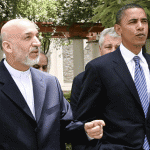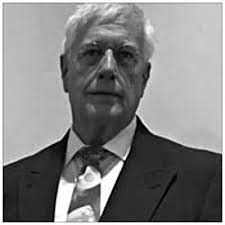 KARZAI’S ATTEMPTS TO PLAY US, INDIA, PAKISTAN AND RUSSIA AGAINST EACH OTHER
KARZAI’S ATTEMPTS TO PLAY US, INDIA, PAKISTAN AND RUSSIA AGAINST EACH OTHER
A CHILDISH ATTEMPT AT REVIVAL OF “COLD WAR THINKING”
By Gordon Duff STAFF WRITER/Senior Editor
When the Afghan Parliament threw out President Karzai’s request to replace UN election inspectors with those of “his choosing,” Karzai chose to blame “foreigners” for his problems. The problem UN inspectors found in the election that renewed the Karzai presidency last August was massive fraud, with over 1/3rd of votes being throw out. Ranting about America or the United Nations won’t cure the ills of the already seriously ill Karzai presidency. America can be blamed, not for interfering with elections but for supporting Karzai in the first place. Bush clearly saw Karzai as a “place holder” who would sit in Kabul while the war in Iraq raged on, a place holder unlikely to speak out and make demands, the demands that could have united Afghanistan and worked toward building the nation that is now drawing tens of thousands of new American troops into battle.
Karzai was also an easy fit into the Bush era “no bid” contract way of doing business, a method free of accountability and oversight that would foster corruption and allow the restoration of Afghanistan as the world’s foremost “narco-state.” When logistical support of allied forces in Afghanistan and the renewed opium farming and newly instituted heroin production began filling the coffers of the insurgent leaders and “gun culture” war lords alike, all under the loose terminology of “Taliban,” with massive “transportation security fees” it became clear that the fight in Afghanistan and neighboring Pakistan was going to take on an unexpected level.
The growth in drug trafficking, some tied directly to members of Karzai’s family, the poor performance of the Afghan police and military and the massive corruption combined with Karzai’s own alliances with India, alliances which are leading to more instability rather than less, are making Karzai’s future uncertain. Last week’s surprise visit by President Obama, coming on the heels of the “smackdown” given Israeli PM Netanyahu and the lengthy US visit by Pakistani Army Chief General Ashfaq Kayani and Foreign Minister Shah Mehmood Qureshi presented Karzai with a greatly altered political landscape, particularly in regards to his long personal relationship with India.
With relationships in Washington shifting from the Indo-Israeli alliance toward favoring Pakistan, whose recent military and intelligence successes have gained much notice, Karzai’s position has become increasingly precarious. Rumors are that the US has been having “behind the scenes” talks with former Prime Minister Gulbuddin Hekmatyar, placed by the Bush administration on the “terrorist” list right under Usama bin Laden. Hekmatyar has long presented himself as a “deal maker” between the west and Taliban organizations in both Afghanistan and Pakistan. His reappearance on the scene, if authenticated, adds a new dimension to American policy in the region, and an indication of an unusual “flexibility.”
ANSWERING THE POLICY SHIFT TOWARD PAKISTAN
President Karzai’s inability to gain the confidence of tribal Jirgas across Afghanistan is the most telling of his faults. His relationship with the United States and the largess tied to massive contracts to support allied efforts has kept him in a key position in Kabul and has brought a number of political opponents to his side, thus limiting the field of choice when looking for a successor. The traditional characteristics required of a leader, strong tribal bloodlines, a commanding physical presence and the capability of utter ruthlessness when required are unlikely to be understood by Americans though they are, not just accepted but valued and desired by the Afghans. The other problem is Paksitan.
The issue is much less likely finding a leader more pleasing to Pakistan as finding one who is capable of building a relationship with Pakistan that will require Pakistan to reassess its national policies to its own Pashtun minority. Tensions between the two nations have been an untold story in the west. Afghani’s see the 1893 Durand Line, drawn by the British, separating the two nations as an assault on their nationhood. Pakistan’s policies toward their tribal areas, limiting economic development and delivery of education and health care services has made the problem considerably worse, leading to, not only radicalization but a combination of banditry and terrorist insurgency that has thrown the country into upheaval. Any settlement will require a reassessment of Pakistan’s role in the border regions but also necessitate a development page requiring, not only a well conceived plan but financing not yet on the table.
Assuming Pakistan’s willingness to reassess their policies in FATA, the Federally Administered Trial Areas, restoring not just civil order but broader development plans for the regions, the likelihood of a rapprochement between the two nations could be excellent, especially if Karzai, seen as a stumbling block to better Pakistan-Afghanistan relations continues to suffer a decline in influence.
THE FEAR OF AMERICA’S BAD CHOICE
The safest policy for America would be to push Afghanistan toward a new leader even less effective and charismatic than Karzai. As corruption and alienation of the tribes are seen as the issues that have plagued the Karzai regime, a typical move by Washington would be to find a “player” capable of managing effectively within the system of parliamentary reforms but also unwilling to “rock the boat.” Such a player is unlikely to bring the majority of Pastuns and other tribes into a position of cooperation and trust with Kabul. Only the restoration of a traditional leader chosen through tribal councils, chosen, not imposed, will any plan for western withdrawal from Afghanistan stand hope of success.

Gordon Duff posted articles on VT from 2008 to 2022. He is a Marine combat veteran of the Vietnam War. A disabled veteran, he worked on veterans and POW issues for decades.
Gordon is an accredited diplomat and is generally accepted as one of the top global intelligence specialists. He manages the world’s largest private intelligence organization and regularly consults with governments challenged by security issues.
Duff has traveled extensively, is published around the world, and is a regular guest on TV and radio in more than “several” countries. He is also a trained chef, wine enthusiast, avid motorcyclist, and gunsmith specializing in historical weapons and restoration. Business experience and interests are in energy and defense technology.
ATTENTION READERS
We See The World From All Sides and Want YOU To Be Fully InformedIn fact, intentional disinformation is a disgraceful scourge in media today. So to assuage any possible errant incorrect information posted herein, we strongly encourage you to seek corroboration from other non-VT sources before forming an educated opinion.
About VT - Policies & Disclosures - Comment Policy



